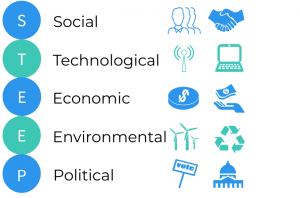Surveillance Capitalism is a major broad topic that comes with many sub-topics to it. To give a brief overview of how serious surveillance capitalism could be, it should be worrisome as this is just the beginning of what to expect. A surveillance capitalist system functions through unprecedented asymmetries in knowledge and power. Surveillance capitalists know everything about us, but their operations are invisible to us and they acquire vast new domains of knowledge. When you use apps on your smartphone, you are probably being monitored by over 5,000 e-trackers per week because they gather vast amounts of information from us, but not for us. They predict our futures for other people’s gain, not ours. We are tracked on our computers as well, and in the cloud, too. This is the type of data that is used to sell us music, politicians, books, games, and so much more. Therefore this market of surveillance Capitalism is an economic order that big companies and governments use to claim human experiences as free raw material in order to gain commercial practices, predictions, and profit. All of which is considered legal through the idea of epistemic inequality. Currently, there are many forms of surveillances. In our daily lives it has become nearly impossible to not come across surveillances, as it has become apart of our lifestyle. Everyday civilians come across biometric surveillance, phone monitoring surveillance, internet monitoring surveillance, and audio surveillance; all of which are key components to what companies and governments use to track and collect our data.
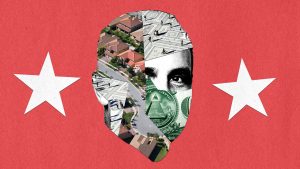
Surveillance Capitalism and Democracy
Surveillance Capitalism is noted to pose a significant and lasting effect on the democratic process in the United States. Harvard Professor Shoshanna Zuboff has written extensively on the topic, even going as far as writing an opinion piece in the New York Times post-insurrection claiming that we cannot have democracy if we live in a surveillance society. The main issue with surveillance on a society is it creates a problem of no free thought. Companies use our data from ad-clicks, uploaded images, comments, status updates, web searches, etc. and build behavioral profiles on an individual. There is no thought a person could have that a company in possession of such a profile would not expect you to have. It is even thought that companies like Facebook know you better than you anyone else. This leaves people open to manipulation by companies. Companies learn your behaviors and are able to manipulate you through this, getting an individual to click ads which they profit off of. In the film Inception, the plot of the film is about a group of people hired to implant an idea into the head of an heir to a multi-billion-dollar company. They learn everything about him, not only professionally, but personally. This same concept can be applied to companies and how they manipulate the behavior of individuals. They do not tell you to click something, they implant the thought in your head to click something. If companies can get you to click an ad, they could also have the ability to get you to vote for specific candidates, as algorithms control what you see. We’ve seen the implications of this, particularly during the January 6th insurrection. Facebook allowed the “stop the steal” MAGA supporters to organize on their website because it made the company a significant amount of money. This conveys the idea that surveillance is detrimental to society, particularly due to the fact it puts profit over democracy.
Big Data
The dictionary definition of Big Data is as follows: extremely large data sets that may be analyzed computationally to reveal patterns, trends, and associations, especially relating to human behavior and interactions. This data essentially consists of everything used to create behavior profiles. Some facts about Big Data are: On Facebook, every 60 seconds, there are 140,000 pictures, 500,000 comments, and 300,000 status updates posted. 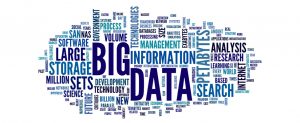 Amazon collects more than just data usage on their platform, but if you own an Alexa, they also record private conversations in the household. Google caters personalized ads and searches based on data collected, which can play detrimental effects, DuckDuckGo does not due to the anonymity the search engine provides. Apple does collect data, but in a significantly less harmful way. Apple will only cater ads to you on: The App Store, The News App, and the Stocks app. They only cater these ads in segments, so they are not personalized just for you (a segment consists of 5,000 people). Example: If you read fashion articles on the news app, they may show you ads based on fashion but they are not directed at you specifically, but they categorize all people who like fashion into a “segment” and push the entire segment the same ads. They are not necessarily personalized. Apple also does not sell your data. Apple brags about the level of individual privacy they ultimately provide in comparison to competitors.
Amazon collects more than just data usage on their platform, but if you own an Alexa, they also record private conversations in the household. Google caters personalized ads and searches based on data collected, which can play detrimental effects, DuckDuckGo does not due to the anonymity the search engine provides. Apple does collect data, but in a significantly less harmful way. Apple will only cater ads to you on: The App Store, The News App, and the Stocks app. They only cater these ads in segments, so they are not personalized just for you (a segment consists of 5,000 people). Example: If you read fashion articles on the news app, they may show you ads based on fashion but they are not directed at you specifically, but they categorize all people who like fashion into a “segment” and push the entire segment the same ads. They are not necessarily personalized. Apple also does not sell your data. Apple brags about the level of individual privacy they ultimately provide in comparison to competitors.
Snowden
Throughout U.S history, there has always been a rumor of the government collecting individuals’ information and data. This came into public eye in 2013, when Edward Snowden, a former computer intelligence consultant leaked information on how the government can illegally seize millions of individuals records, and they have been hiding that for years.  He also explains that NSA could collect personal data from phones, laptops, search history, chatrooms, and social media and with all this information, that they would call the “pattern of life”. The pattern of Life is an analysis the government uses to perform surveillance. This is “a specific set of behaviors and movements associated with an entity over a given period and focuses on the fundamental uniqueness of each individual. Technology advancements have revolutionized the way was our able to collect and process such large volumes of data. The amount of information gathered from the pattern of life, and the willingness of Snowden to give up this information, puts into perspective how big of an issue we have. There has been acts such as the U.S Patriot Act, that are in place to prevent terrorism by allowing the government to use surveillance, however it brings up the question if the government is using surveillance for other reasons? Later, in 2015 the US Patriot Act was up for renewal and in response to Snowden’s revelations, there was an increased oversight in transparency calling it the USA Freedom Act. This creates a new, streamlined process for getting access to Americans’ phone records, but it requires these requests to be focused on a specific “selector,” such as a customer name or phone number. This also prohibits the bulk collection of customer data. The government has voted against protecting people’s personal information with Senate in 2020 voting not to protect Americans search history data and secret and warrantless surveillance by law enforcement. Is it right for the government to search and spy of people who are not breaking any laws without any real reason to search?
He also explains that NSA could collect personal data from phones, laptops, search history, chatrooms, and social media and with all this information, that they would call the “pattern of life”. The pattern of Life is an analysis the government uses to perform surveillance. This is “a specific set of behaviors and movements associated with an entity over a given period and focuses on the fundamental uniqueness of each individual. Technology advancements have revolutionized the way was our able to collect and process such large volumes of data. The amount of information gathered from the pattern of life, and the willingness of Snowden to give up this information, puts into perspective how big of an issue we have. There has been acts such as the U.S Patriot Act, that are in place to prevent terrorism by allowing the government to use surveillance, however it brings up the question if the government is using surveillance for other reasons? Later, in 2015 the US Patriot Act was up for renewal and in response to Snowden’s revelations, there was an increased oversight in transparency calling it the USA Freedom Act. This creates a new, streamlined process for getting access to Americans’ phone records, but it requires these requests to be focused on a specific “selector,” such as a customer name or phone number. This also prohibits the bulk collection of customer data. The government has voted against protecting people’s personal information with Senate in 2020 voting not to protect Americans search history data and secret and warrantless surveillance by law enforcement. Is it right for the government to search and spy of people who are not breaking any laws without any real reason to search?
Public Surveillance
There have also been advancements in facial recognition technology, where the government can easily recognize and point you out. In NYC, they have begun to use facial recognition technology and has led to over 3,000 arrests. However, what if this information fell into the wrong hands. If a company possession of facial recognition is breached, what can be done with that information? Along with this, the government has also implemented aerial surveillance. In response to BLM protest, aerial surveillance was carried out by law enforcement to point out people in crowds. They scanned the contents of millions of social media posts, forwarding crucial information to police departments so agents could track and surveil protests. With the rise of usage of people using the internet, it has been easier than ever to collect data online. Companies have been working with the government as surveillance intermediaries to operate as front post for U.S government agencies giving away your personal information and data. These companies are given the upper hand here, when deciding whether they want to sell their information based upon government request. Government surveillance has been trending toward AI and machine learning and this will become a big factor in how the government process and collect information. Is it crucial that the US creates a framework to guide this new technology, so they are used for their intended use? With all this surveillance arising, is there a way to manage a balance between law and respecting citizens privacy/rights? I feel like in comparison to China, where they are honest about their dystopian environment, the US camouflages it is mentioning that these programs are only in set in place to hold up civil liberties.
Epistemic Inequality
Surveillance capitalism is held in high regard with epistemic inequality, even with how unethical it is that we have no knowledge of what these corporations know about us. Of course, the big corporations are the ones holding it in high regard, simply because it gives them access to anything and everything we do online and the parts we have. Epistemic Inequality has always existed, but it has only gotten more and more affecting as the world moves more and more online. Not only have they been able to view our search history for years, but online corporations also track and our location, our communication with each other, our purchases or interests in products, our various website visits, and our biometric information. While we are not “For Sale” ourselves, or thoughts definitely are. Targeted advertisements are used to stay on top of sales, and if we have even slight interest for a product, we will undoubtedly receive some sort of pop-up, email, or ad on the side of the next website we visit. Advertisements are become more and more like narcotics every day, and it is all following two very simple laws. These laws are consumerism and capitalism, and they have led to among other things, competitive production, profit maximization, productivity, and growth.
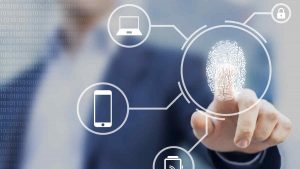
Privacy Claims
These underlying forces also currently operate in the environment of a new logic of accumulation, which Google refined in their earlier years; its own sui generis laws of motion. Sui generis is a Latin expression that translates to “of its own kind.” In legal situations, sui generis indicates an independent legal classification. What falls under one of these independent legal classifications? Industrial Capitalism of course. Through targeted advertisements, five corporations – called the “frightful five” – Amazon, Apple, Facebook, Microsoft and Alphabet, the parent company of Google. 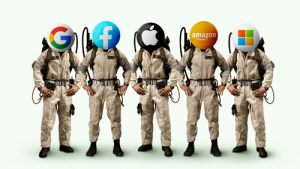 Big corporations are constantly collecting our data and using what they collect to predict our behavior and purchase and shape their next moves off of this. The five leading corporations are doing much more than using data they receive from their sites; they are also buying our online data from third-party brokers. These brokers are constantly selling our data, data we give them for free- which online companies use to personalize our online experience. These third-party brokers make money on every concept that can be pushed onto us by an advertisement, and even if only half of the people seeing the advertisements actually purchase the items, this is millions more sales than they would have bought items without these personalized ad experiences. These sales are called the “surveillance dividend”, with almost all of the revenue from this portion of sales coming directly from online advertisements that we fall victim to. Companies such as Google and Amazon are not only using their surveillance of us to sell us what we need, but they are also trying to sell us what we will need in the future. They have started researching how to predict our future behavior and wants in the market and fell our minds with certain brands only. These products that are being sold before we even need them are part of what is called the “behavioral future markets” where “certainty” is being sold by these surveillance capitalists to their business customers.
Big corporations are constantly collecting our data and using what they collect to predict our behavior and purchase and shape their next moves off of this. The five leading corporations are doing much more than using data they receive from their sites; they are also buying our online data from third-party brokers. These brokers are constantly selling our data, data we give them for free- which online companies use to personalize our online experience. These third-party brokers make money on every concept that can be pushed onto us by an advertisement, and even if only half of the people seeing the advertisements actually purchase the items, this is millions more sales than they would have bought items without these personalized ad experiences. These sales are called the “surveillance dividend”, with almost all of the revenue from this portion of sales coming directly from online advertisements that we fall victim to. Companies such as Google and Amazon are not only using their surveillance of us to sell us what we need, but they are also trying to sell us what we will need in the future. They have started researching how to predict our future behavior and wants in the market and fell our minds with certain brands only. These products that are being sold before we even need them are part of what is called the “behavioral future markets” where “certainty” is being sold by these surveillance capitalists to their business customers.
STEEP Analysis
The topic of surveillance capitalism also interludes in every aspect of the steep analysis. This economic system companies use that is centered around our personal data affects us socially. In other words, people’s social lives are going to constantly be affected with what companies would advertise to use based on the information they have of us. Unfortunately, as technology keeps advancing, it’ll keep furthering the dilemma of our privacy. How far could companies go with our privacy and information if technology advances will allow them to gain more power. While surveillance capitalism has many negative attributes to it, could it be possible for this market to be at least somewhat beneficial. In this instance could companies use our data and information to promote and advertise key issues we as people need to know. For example could surveillance be beneficial for preparations of environmental disasters or global shortages. While, most likely this will not happen, this is the only reasonable way surveillance capitalism could be a positive thing in our lives. As stated earlier, with the advancement of technology how much more financial gains could big companies gain if they continue the practice of epistemic inequality. Economically, surveillance capitalism gains massive profits to these companies as they can sell our data to third party brokers. Therefore, this is when politically government officials need to come in. Our government and political officials should enact rules to prevent the invasion of our privacy as civilians.